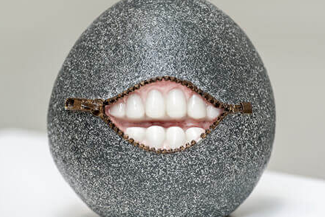Receding gums are one of the more common dental conditions experienced by many patients. For some patients, gum recession occurs so gradually that it can go unnoticed at first. Gum recession is a process that sees the gum line eroding to expose more of the tooth (teeth may begin to look longer than before).
 The problem with receding gums is that this allows for pockets to form between teeth and gums, and opens up an ideal environment for teeth destroying bacteria to accumulate. Eventually, if left untreated, this condition can result in damaging the supporting tissue around teeth as well as having a negative impact on the quality of bone structure leading to tooth loss.
The problem with receding gums is that this allows for pockets to form between teeth and gums, and opens up an ideal environment for teeth destroying bacteria to accumulate. Eventually, if left untreated, this condition can result in damaging the supporting tissue around teeth as well as having a negative impact on the quality of bone structure leading to tooth loss.
It is best not to ignore any signs or symptoms of gum recession and a dentist in W1 is best placed to diagnose and treat the condition. If teeth start to feel sensitive, gums begin to bleed, feel sore or look swollen, it is time to consult with a dental practitioner.
7 Causes of gum recession
The causes of gum recession are wide ranging from periodontal disease to genes inherited from parents. Here’s a quick look at some of the major and more common causes that result in receding gums.
- Brushing teeth aggressively
When it comes to proper brushing teeth techniques a good piece of advice is to brush but do not scrub. It is always encouraging when patients take steps to keep their teeth clean, but using excessive force when brushing teeth has two negative consequences, the enamel on teeth wear away and gums are pushed back.
- Lack of proper dental care
Not taking proper care of teeth makes it easy for the build up of tartar to affect teeth and cause gums to recede. A dentist in W1 can effectively remove the build up of tartar which is otherwise difficult to get rid of.
- Periodontal disease
Bacterial gum infections are a leading cause of gum recession, destroying gum tissue as well as the quality of bone structure supporting teeth.
- Genetics
Some patients are more likely to experience gum recession due to genes inherited from parents. If one of your parents has receding gums, this raises the risk of you developing the condition too.
- Fluctuations in hormone levels
Hormone changes that occur throughout a woman’s lifetime (puberty, pregnancy, and menopause) can cause gums to become more sensitive and raises the risk of gums receding.
- Gum injuries
Any trauma caused to gum tissue due to an injury on teeth may increase the chance of gum recession.
- Misaligned teeth
In some cases, abnormal teeth positions may lead to the occurrence of gum recession.
As in all medical and dental conditions, catching the symptoms of gum recession early is best to minimise complications and for a proactive approach to ensure treatment produces desired results. Contact us at Harley Street Dental Clinic to schedule an appointment if you are concerned about the health of your gums. Our dental practitioners would be happy to make an assessment and suggest a treatment plan if necessary.
